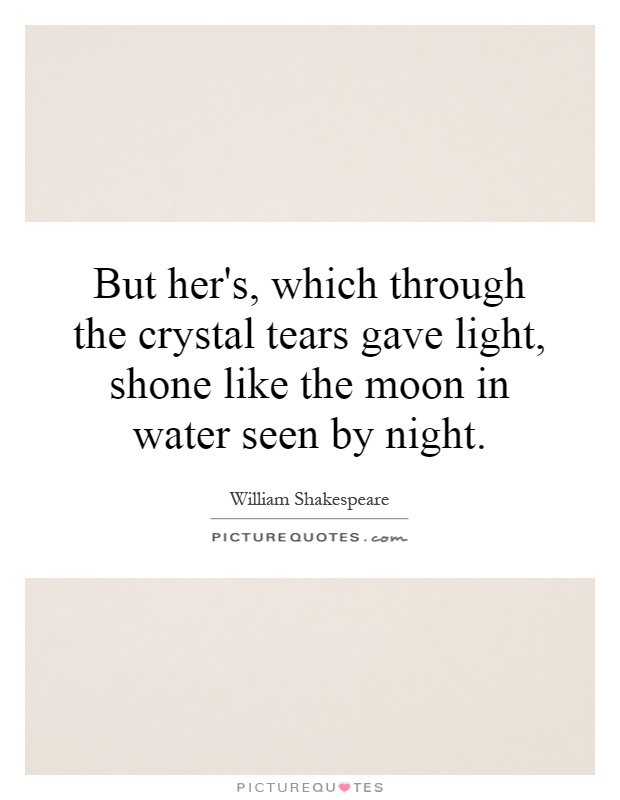But her's, which through the crystal tears gave light, shone like the moon in water seen by night

But her's, which through the crystal tears gave light, shone like the moon in water seen by night
In William Shakespeare's play "A Midsummer Night's Dream," the line "But her's, which through the crystal tears gave light, shone like the moon in water seen by night" is a beautiful description of the character Hermia. This line captures the essence of Hermia's beauty and grace, comparing her eyes to the moon reflected in water.Hermia is a central character in the play, a young woman who is in love with Lysander but is being forced to marry Demetrius by her father. Despite the obstacles she faces, Hermia remains strong-willed and determined to follow her heart. Her beauty is not just physical, but also shines through in her courage and resilience.
The comparison of Hermia's eyes to the moon in water seen by night is a powerful image that conveys both her beauty and her inner strength. The moon is often associated with femininity and mystery, and in this context, it symbolizes Hermia's allure and allure. The image of the moon reflected in water adds a sense of depth and complexity to Hermia's character, suggesting that there is more to her than meets the eye.
Shakespeare's use of language in this line is masterful, as he creates a vivid and evocative image that lingers in the mind of the audience. The use of the word "crystal tears" suggests both fragility and purity, highlighting Hermia's vulnerability in the face of her father's demands. The comparison to the moon in water seen by night adds a sense of magic and enchantment to the description, emphasizing Hermia's otherworldly beauty.
Overall, this line captures the essence of Hermia as a character who is both beautiful and strong, vulnerable yet resilient. It is a testament to Shakespeare's skill as a playwright and poet, as he uses language to create a vivid and memorable portrait of one of his most beloved characters.












 Friendship Quotes
Friendship Quotes Love Quotes
Love Quotes Life Quotes
Life Quotes Funny Quotes
Funny Quotes Motivational Quotes
Motivational Quotes Inspirational Quotes
Inspirational Quotes